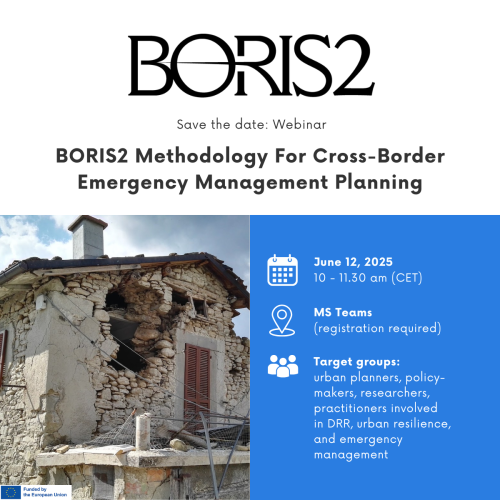
Key information
- Date(s)
- -
- Attendance type
- Online
- Organiser
- Pricing
- Free
- Attendance model
- Open
Description
Disasters don’t stop at borders. Cross-border regions can use the joint assessment of risks as a chance to strengthen cooperation, integrate expertise from various disciplines, and foster a deeper mutual understanding. Harmonisation in this context means aligning methods, perspectives, and data to assess and address both single and multiple risks in a coordinated manner.
What are the key differences between deterministic and probabilistic risk assessments and when should each be used? The team behind the DG ECHO-funded project BORIS2 is ready to provide answers.
This webinar will present the framework and multi-step methodology for multi-risk assessment developed in BORIS2. Based on identified needs, stakeholder input and defined objectives, the framework delivers a harmonized approach for assessing both single and multiple risks in urban areas. It also introduces a method to evaluate the efficiency of urban emergency systems, supporting more effective emergency planning in the preparedness phase. The framework will serve as the basis for the upcoming cross-border pilot applications which will be presented during this webinar as well.
Goals of the webinar
- Initiate discussions of best practises
- Get new insights from participants
- Networking